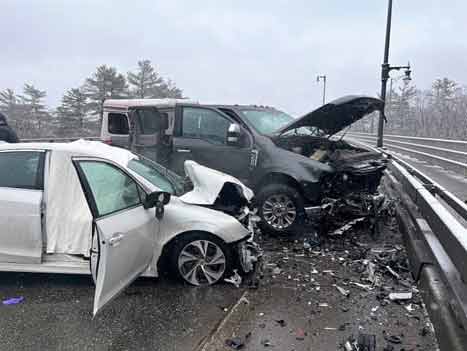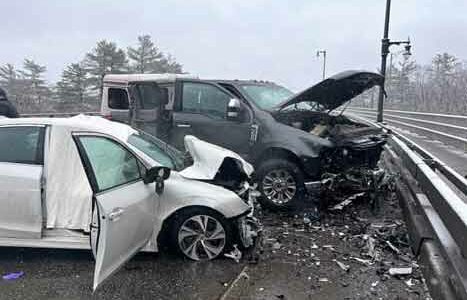If you are directly or indirectly engaged in a car accident that involves property damage, physical injury, or death, you are legally compelled to do many things. There are also certain steps you should take to legally protect yourself if the accident involves injury or property damage.
———-
Get help
Car accident lawyers , take the hard legal matters off your plate while you cope with the physical and emotional agony caused by a car accident. Contact car accident lawyers today for a free consultation.
———-
1. Maintain your presence on the scene.
First, you must remain at, or promptly return to, the accident scene. Leaving the site of an accident, whether you were directly or indirectly involved, is unlawful.
2. Request assistance for someone who has been hurt
If someone looks to be hurt, you should phone an ambulance. Unless you have medical expertise or the victim’s needs are evident, you should not touch the injured individual. For example, if a car is on fire, you can pull the sufferer out. If you can do so safely, you can help prevent future accidents by alerting approaching traffic, such as by flashing your hazard lights or raising your vehicle’s hood.
3. Call the cops or go to a collision center
Property damage of less than $2,000 with no injuries
There is no legal requirement to call and wait for the police if the accident does not involve personal injury, none of the drivers involved are suspected of a law violation, such as driving while their ability was impaired, and the property damage is less than $2,000 (total, combined damage to both vehicles). In most cases, cops will not attend the location under these conditions. The only exemption is if someone else’s property has been damaged, such as telephone poles, guard rails, or someone’s grass. In most circumstances, you must just take your vehicle to a Collision Reporting Centre.
If there is more than $2,000 in property damage and/or someone is harmed,
When someone is wounded in an accident, any of the drivers involved is suspected of breaking the law, or there is property damage in excess of $2,000, you are obligated by law to inform the police before leaving the scene. You may be required to wait for the police to come, or you may be instructed to take your vehicle to a Collision Reporting Centre.
Centers for Collision Reporting
Following an accident, you must bring your car to a Collision Reporting Centre within 24 hours. You may have up to 48 hours if the center is closed on weekends. Your car will be inspected and the damage documented at the Collision Reporting Centre, and you will be assisted in filing a police report. The police do not immediately submit these reports to your insurance carrier. If the collision was reported to a Collision Reporting Centre, the Centre will notify your insurance provider automatically, unless you request otherwise.
Collision Reporting Centres are collaborations between local police departments, insurance companies, and private businesses.
Refer to the Toronto Police Service for further information and a detailed explanation of when you must report an accident to the police (TPS).
4. Contact your insurance provider.
All automobile insurance policies require you to record all accidents, regardless of the severity of the damage. Even if you pay for the accident’s damages yourself, the accident will count against you if it was 100% your fault or you were partially at blame. Insurance firms set their prices based on “risk,” regardless of who is at fault in the accident. If you are not at fault, the accident will not be recorded against you, and your insurance premium will not rise.
What if you fail to notify your insurance company?
People who wish to file an insurance claim will usually take their vehicle to a reporting center and report the accident to their insurance provider. Those who do not wish to file a claim sometimes do not report the accident.
If the collision produced less than $2,000 in damages and you did not report it, but the other motorist did, their insurance company will contact your insurance company, and your own insurance company will learn about it. Though you fail to report an accident to your insurance provider, even if you were not at fault, the insurance company has the authority to terminate or refuse to renew your coverage.
What else can you do?
If you are involved in an accident, there are various more things you should do.
Everything concerning the accident should be written down:
- the other car’s license plate, make, model, and year;
- the number of the other driver’s license, address, and phone number;
- the name and policy number of the other driver’s insurance carrier; and
- the names and phone numbers of witnesses to the accident.
You must disclose your name, address, phone number, vehicle permit number, and insurance information in writing to other drivers involved in the collision, as well as police officers or witnesses, upon request. However, you should use caution in what you say. Nothing should be admitted. Except for a police officer, you should not apologize or make a statement. You should not offer to pay for anything and should not take any money.
Before accepting a payment or signing a release, you should consult with a lawyer or an insurance agent. You should also keep track of any medical or mechanical bills, as well as any damaged property or injuries.

